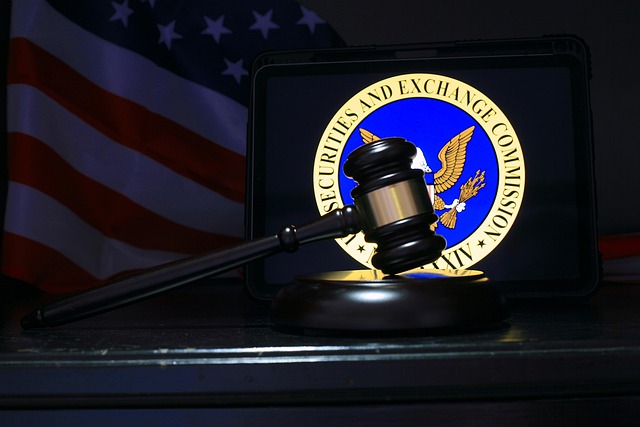Constitutional Protections in Criminal Defense are vital for fairness and justice, covering rights against self-incrimination (Fifth Amendment), right to counsel (Sixth Amendment), protection from unreasonable searches (Fourth Amendment), and due process guarantees. These protections, crucial in white-collar crimes, ensure individuals aren't coerced and defend against arbitrary state action, with successful defenses relying on meticulous examination of evidence collection methods and strategic legal arguments.
“Criminal law enforcement, while crucial for societal order, must balance public safety with individual rights, thanks to robust constitutional protections. This article delves into key components of criminal defense strategy, focusing on essential Constitutional protections. We explore the Fifth Amendment’s privilege against self-incrimination and right to counsel, vital in ensuring fair defense representation. Additionally, we scrutinize provisions against unreasonable searches and seizures, as well as due process guarantees for a just trial and accurate judgment. Understanding these constitutional protections is paramount for both legal professionals and citizens navigating criminal cases.”
- Understanding Constitutional Rights in Criminal Cases
- The Fifth Amendment: Privilege Against Self-Incrimination
- Right to Counsel: Ensuring Fair Defense Representation
- Protecting Against Unreasonable Searches and Seizures
- Due Process: Ensuring a Fair Trial and Accurate Judgment
Understanding Constitutional Rights in Criminal Cases

Understanding Constitutional Rights in Criminal Cases is paramount for both law enforcement and defendants alike. Every individual accused of a crime possesses certain inherent rights guaranteed by the Constitution, designed to protect them from arbitrary or oppressive action by the state. These constitutional protections serve as a bulwark against overreach by law enforcement and ensure that justice is served fairly and impartially.
Knowledge of these rights is crucial for criminal defense attorneys, who must advocate for their clients’ interests while navigating complex legal procedures. Across the country, defendants benefit from the complete dismissal of all charges when violations of their constitutional rights are established in court. This underscores the importance of recognizing and upholding these protections, ensuring that every person, regardless of background or circumstances, is treated with the dignity and fairness due to them under the law.
The Fifth Amendment: Privilege Against Self-Incrimination

One of the most significant Constitutional protections in Criminal Defense is enshrined in the Fifth Amendment, which guarantees individuals the right to remain silent when facing interrogation by law enforcement. This privilege against self-incrimination is a cornerstone of American criminal justice, safeguarding citizens from being forced to provide testimony that could potentially incriminate them. It’s particularly crucial in high-stakes cases involving white collar crime or those within influential philanthropic and political communities where the stakes are high, and missteps can have severe repercussions.
This amendment ensures individuals cannot be compelled to be witnesses against themselves, protecting their right to due process. This protection is vital for maintaining fairness in the criminal justice system, ensuring that law enforcement cannot manipulate or coerce suspects into providing evidence that could damage their case. By understanding and exercising this right, individuals can navigate legal proceedings with greater confidence, knowing their Constitutional protections are in place.
Right to Counsel: Ensuring Fair Defense Representation

The right to counsel is a cornerstone of Constitutional Protections in Criminal Defense, ensuring that every accused individual has access to legal representation during their trial. This fundamental right, enshrined in the Sixth Amendment, guarantees fair defense and protects defendants from facing charges alone. The presence of an attorney plays a pivotal role in high-stakes cases, where the consequences can be life-altering. By providing strategic guidance, legal expertise, and a robust defense strategy, counsel ensures that suspects are treated fairly within the criminal justice system.
In a complex legal landscape, having an experienced advocate is crucial. This is especially true for those facing unprecedented track record charges or navigating cases within diverse and influential philanthropic and political communities. Skilled counsel can navigate intricate laws, challenge evidence, and protect their client’s rights at every stage of the criminal process. This not only ensures a fair trial but also safeguards against potential miscarriages of justice.
Protecting Against Unreasonable Searches and Seizures

In the pursuit of justice, safeguarding individual liberties from government overreach is paramount, especially when it comes to criminal law enforcement. The Fourth Amendment to the U.S. Constitution establishes important protections against unreasonable searches and seizures, a cornerstone of fair criminal procedure. This constitutional right ensures that law enforcement actions are justified, minimizing the potential for abuse and preserving privacy.
Across the country, these protections are vital in countering white-collar and economic crimes, where investigations can be intricate and delicate. An unprecedented track record of successful defense strategies has been built upon the foundation of Constitutional Protections in Criminal Defense. By meticulously scrutinizing evidence collection methods, legal professionals ensure that law enforcement adheres to strict guidelines, protecting citizens’ rights while upholding the rule of law.
Due Process: Ensuring a Fair Trial and Accurate Judgment

In the realm of criminal law enforcement, due process serves as a cornerstone, ensuring that individuals accused of crimes receive a fair trial and an accurate judgment. This principle is intricately tied to constitutional protections in criminal defense, which are designed to safeguard the rights of the accused. The U.S. Constitution guarantees various rights, including the right to a jury trial, presumption of innocence, and protection from self-incrimination, among others. These provisions form the basis for a robust defense strategy, especially in white-collar cases, where complex financial crimes demand meticulous legal navigation.
A fair trial necessitates a balanced approach, where both the prosecution and defense have equal opportunities to present their cases. This balance is crucial for achieving winning challenging defense verdicts and ensuring that justice is served. Skilled attorneys play a pivotal role in interpreting laws, presenting compelling arguments, and examining evidence to achieve extraordinary results. By upholding these constitutional protections, the legal system maintains its integrity, ensuring that every individual, regardless of the nature of the crime, is afforded the due process they deserve.
Criminal law enforcement must balance public safety with the protection of individual rights, as guaranteed by the Constitution. Understanding these fundamental protections—from the privilege against self-incrimination to the right to counsel and due process—is crucial for ensuring a fair criminal justice system. By safeguarding these constitutional rights, we uphold not only the rule of law but also the dignity and fairness that every individual deserves in their pursuit of justice.






